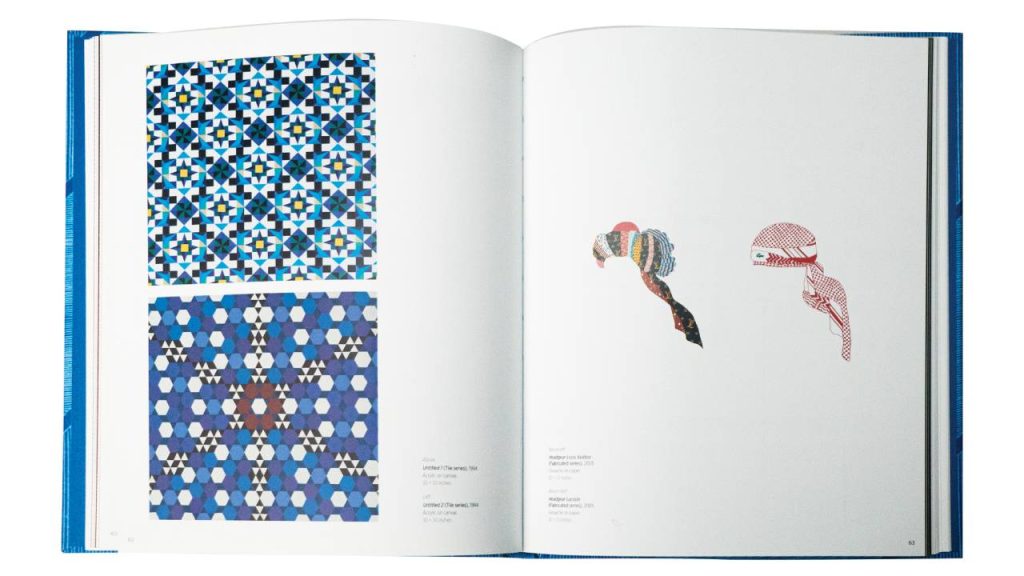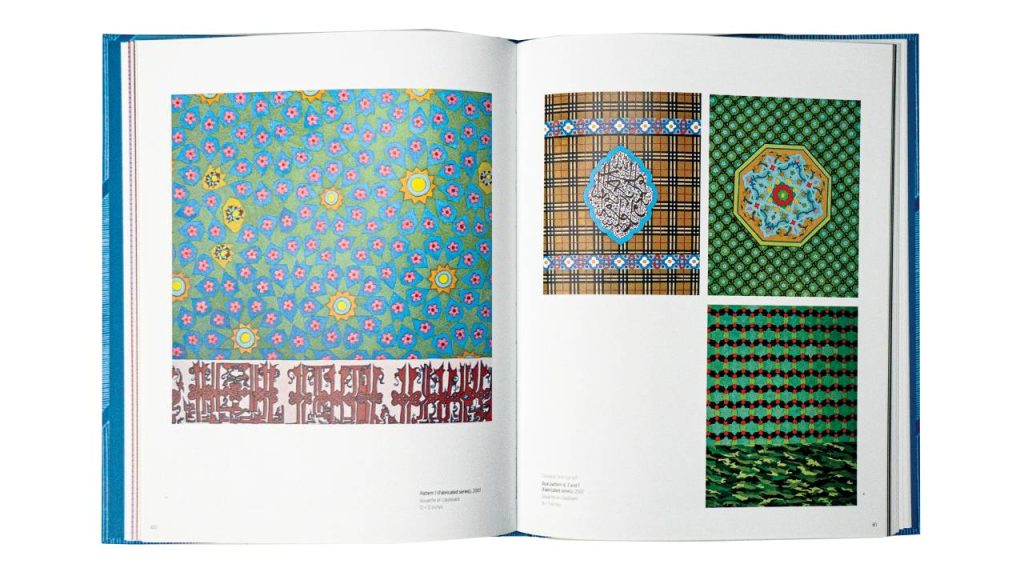Publisher: Akkadia Press
Publication date: 2019
Price: $59.42
akkadiapress.uk.com
Canvas rating: *****
In this first monograph on Pouran Jinchi, three critical voices examine the Iranian-American artist’s 25-year-long trajectory. In her essay What Is Good Somehow Remains, Shiva Balaghi starts with an account of Jinchi at work in her Brooklyn studio. Her intimate description of the artist’s workspace lends an insider’s knowledge of her formal experimentations and literary abstractions. Against a backdrop of military aesthetics and the minimalist grid, Jinchi’s work is positioned between the visual and the textual, offering moments of meditative beauty. In Signs and Ciphers, Maryam Ekhtiar presents Jinchi’s propensity towards nasta’lig- the fluid script of the Persian calligraphic tradition – and her subversions of legibility. Language becomes both semiotics and sculpture as she deconstructs it into diacritical marks and infuses individual letters with density and motion, drawing from


depictions of swarming ants or centrifugal forces. While Ben Eastham’s perspective (This Silence Is a Language Which We Do Not Understand) is the farthest removed from viewing Jinchi’s art through a cultural lens, his literary allusions to Vladimir Nabokov and Ezra Pound and genres like concrete poetry form an outstanding treatise on the seeing, decoding and sounding out of language. All three viewpoints converge over Jinchi’s deconstruction of the banned novella The Blind Owl by Sadegh Hedayat, which neatly unifies the book’s narrative. Referencing Virginia Woolf and Helene Cixous’ call for a metaphorical language, Eastham put it well: “By deconstructing the language of power-by sensualizing it – she exposes and defuses the violence embedded in it… Pouran Jinchi has created just such a language, at once private and universal, perfectly clear and defiantly obscure.”


